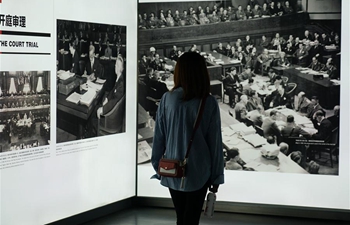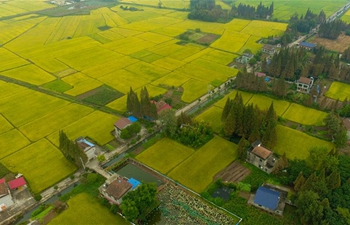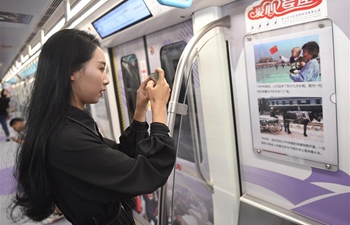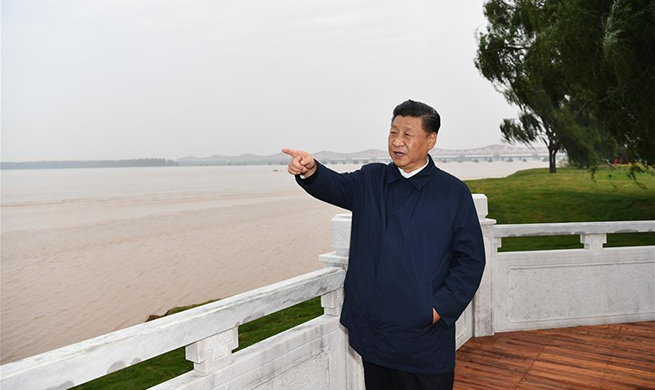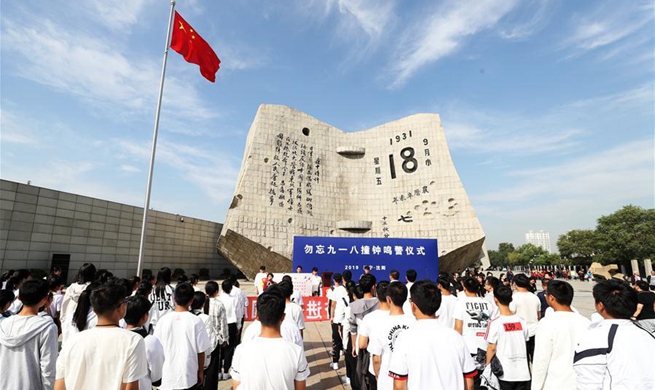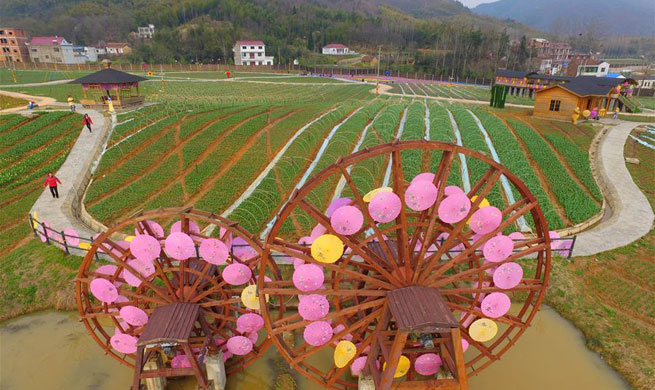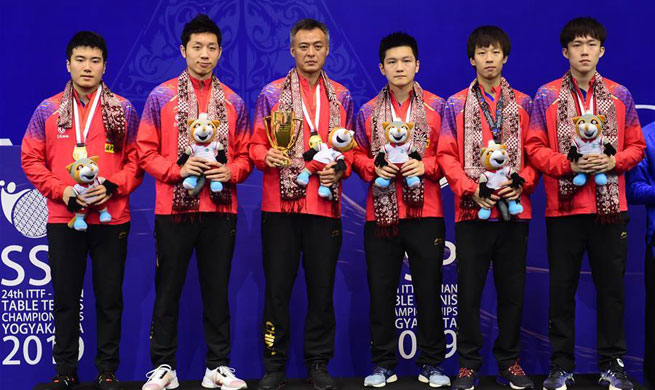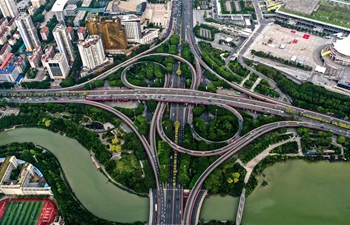BEIJING, Sept. 18 (Xinhua) -- China's state-owned enterprises (SOEs) have navigated torrential waters over the past 70 years, from breaking the ground for the country's industrial system to becoming the model of enterprises worldwide, and are now pledging more contributions to the world economy.
LAYING THE FOUNDATION
At a time when China's manufacturing industry was still in its infancy, it was the SOEs that supplied the bedrock of the country's industrial development.
The seamless steel pipe that debuted in China 66 years ago, the green-clad truck bearing the brand name "Jiefang" as well as the silver-white fighter jet that first rolled off production lines in 1956 attested to the SOEs' early triumphs.
Seven decades have proved long enough for China's SOEs to emulate their foreign counterparts and lead global innovation.
As a long-time pillar of the Chinese economy, the steel industry delivered a total output of 928 million tonnes in 2018, almost 5,900 times that of 1949, accounting for more than half of the world's annual steel production.
Today, SOEs remain active in the advent and growth of China's most acclaimed industrial fronts, including high-speed railway, supercomputers and navigation satellite systems, to name a few.
UNLEASHING VITALITY
Alongside their dazzling achievements, the SOEs' quest to maintain vitality is equally memorable.
China's SOEs have undergone a series of reforms in terms of shareholding, payroll and human resource management since 1978, in an effort to better fit into the big picture of China's economy, which at the time was morphing into a socialist market economy marked by diverse corporate ownerships.
These reforms focused on granting the SOEs more leeway in making corporate decisions.
In 2003, the founding of the State-owned Assets Supervision and Administration Commission (SASAC) of the State Council further improved the management system for China's SOEs and better prepared them for market competition.
Ongoing tasks of SOE reform include mixed-ownership reforms, employee shareholding and differentiated salary systems, with the underlying logic of delegating power unchanged.
GOING TOP-TIER
Years of continuous reforms have honed Chinese SOEs' competitive edge, equipping them with the technologies and managerial skills needed to become global top-tier enterprises.
From 1978 to 2018, the business revenue and profit of China's SOEs expanded at an annual rate of 11.9 percent and 10.3 percent, respectively.
The combined total assets of China's SOEs in 2018 reached 247.1 times those in 1978, while shareholders' equity amounted to 130 times.
The number of Chinese enterprises in the Fortune 500 list has risen for the 14th consecutive year, surpassing the U.S. in 2019 with 129 companies, among which 48 are centrally administered SOEs.
Seventy years on, the path of glory continues for China's SOEs.




